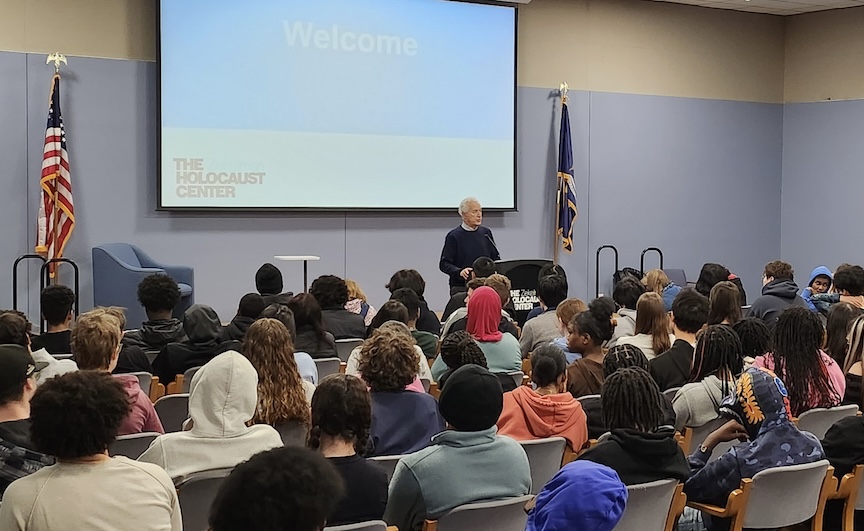350 students in Huron’s MYP interdisciplinary unit learn about the Holocaust in English, science, and history classes
For Huron High School freshmen, a recent field trip to the Zekelman Holocaust Center in Farmington Hills was a powerful and transformative experience unlike any they could have had by simply reading about it, they say.
As part of the school’s “Identities and Crisis” curriculum in the 9th grade International Baccalaureate (IB) program, these students engaged with the history, literature, and science surrounding one of humanity’s darkest chapters.
At Huron, the Middle Years Programme is the IB program of study in the 9th and 10th grades, said IB Facilitator/MYP Todd Newell.
“Part of our requirement is that students have an interdisciplinary experience to help shape their learning so they get multiple perspectives on a topic,” he said. “We study that from three perspectives – world history, English, and biology. The students are getting these different ideas presented to them in these three classes, all around one central statement of inquiry: ‘Misrepresentation of identity has consequences.'”
The culmination of this multi-disciplinary exploration is a visit to the Zekelman Holocaust Center, where students can tangibly engage with the history.
Newell said that while there, students learn from an actual physical museum about the impact the Holocaust had on the Jewish people and other groups. One of the most impactful components of the visit is hearing directly from a second-generation Holocaust survivor, he said, noting that this is typically the son or daughter of survivors who shares the impact it had on their family, creating a powerful moment for students to connect the historical events to real human experiences.
Social studies teacher Luke Milne said students have told him that the most impactful part of the field trip was listening to the second-generation Holocaust survivor.
“Seeing the generational trauma and actually the emotions—and sometimes the restriction of emotion from the speaker trying to keep from being too emotional—at times was really powerful with our students,” he said.
The culminating assessment requires students to create a virtual museum demonstrating their multi-disciplinary learning about the Holocaust, showing the impact this kind of learning experience has had on them.


Be the first to comment